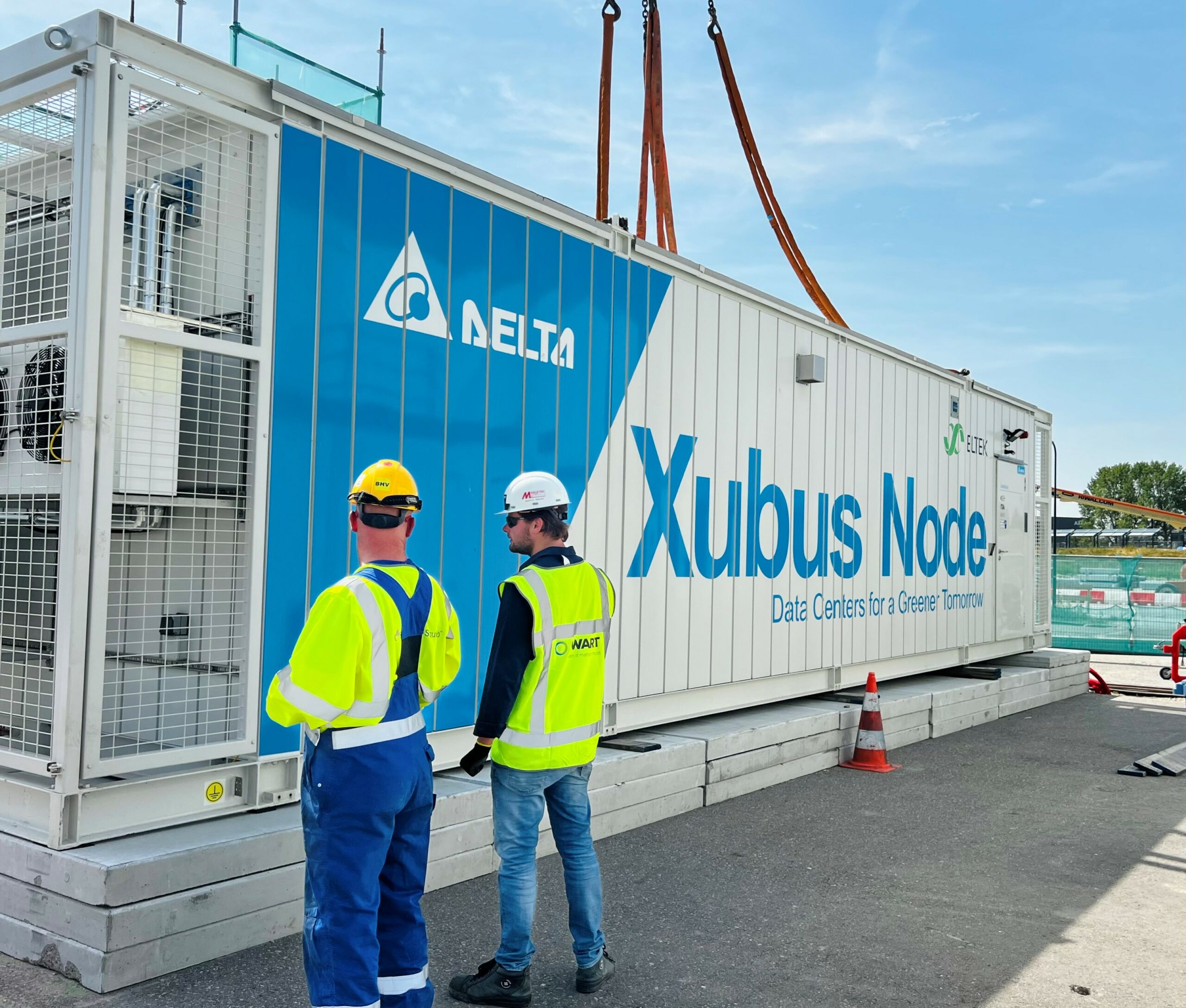Partner content
Leading edge: demand up for prefabricated data centres

You might think of a data centre as a massive, energy-guzzling development somewhere in the countryside. But tomorrow’s data centres will be small, light, robust – and maybe even prefabricated.
Delta Electronics, a Taiwanese electronics manufacturing company with a base in the Netherlands, is seeing an increasing demand for the prefabricated data centers.
“A big rise today is what we call edge data centres,” explains Rakesh Mukhija, Senior Director, Mission Critical Infrastructure Solutions (MCIS) at Delta Electronics EMEA Region. “Imagine an autonomous driving car. You need a maximum one millisecond to know if there is a car in front of you, so you cannot afford to have a data centre far away which typically takes 10 milliseconds to complete the communication path. That could be an accident! So these edge data centres are being built closer to the cities, closer to where most of the end users are.”
Back to the basics, a data centre is a place where data that is being generated is backed up. It might be accessible online in the “cloud” – where companies offer various processing cloud services. But these services need a physical server somewhere too. Companies like banks, telecommunications companies and pharmaceutical firms might want to store their data themselves, to comply with regulation, data security and data protection legislation.
5G network
Then there’s the rise of 5G mobile networks, self-driving vehicles and smart devices from fridges to television attached to the “internet of things (IoT)”. This development will drive data storage to be ever smaller and closer to communities, according to Mukhija. “At the edge of every city, going forward, at the edge of every big housing complex or a big office complex, you will find edge data centres that are small, from 50 to 90 kilowatt power, close to the end user.”
The Netherlands is a key location because fibre optics come from the United States and land here for the central European geographic location. The country is also rapidly advancing with renewable energy – and there’s a drive for power hungry data centres to be carbon neutral.
“Covid was a big booster for data,” he adds. “People started having more and more home offices, so everyone needs data, more e-banking, and with a big roll out of automation in the industrial field. In Europe now there is 18,000 megawatts worth of data, spread over close to nine million square metres of data space.”
Xubus Node
Delta Electronics, which has been supporting data centres for the past two decades with products such as uninterruptable power supplies, cooling, racks, and power distribution units, has been building and advancing its own all-in-one, prefabricated data center solutions – Xubus Node.
“When we are talking to a data centre operator, sometimes they are looking for products, but mostly they are looking for a complete solution: help with the design, supply, installation, commissioning, training and after-sales. So that’s the field we started going in.”
Delta Xubus Node solutions offer turnkey data centres available in five different IT load configurations from 18 to 90kW. It is an all integrated, plug-and-play solution for rapid deployment with excellent reliability and flexibility. The units, around six metres long, three metres wide and high, are built in Croatia or facilities in Asia and can come complete with Power System, Cooling System, Fire Protection System and an option of the monitoring system – Delta InfraSuite Manager.
“It’s like plug and play, done in six to eight months – compared to 18 to 24 months for a traditional brick-and-mortar centre,” he added. “Last year, one pharma manufacturing enterprise wanted a quick and easy solution to back up their data, their requirement was 70 kilowatts of power, and it was done in less than nine months, including installation and commissioning. Another important thing is that in most countries, you don’t even need building permission: you could just put them in a parking lot or an empty space.”
Revolution
The deployment of edge datacenters can be a revolutionary change for many industries. “The emerging 5G infrastructure opens new opportunities for enterprises and institutions offering critical services to customers and the public. Imagine in a far off village, you have only a primary healthcare centre and there is an emergency situation where a doctor has to operate, and would require guidance from other specialists that is perhaps located in another city or country,” said Mukhija.
“The top surgeon could be guiding that doctor in online. And in this situation you cannot afford to have latency [lag time] in there. It has to be real time communication. With Delta’s Xubus Node, we offer prefabricated data centre solutions with unprecedented speed, capacity, reliability and data security.”
“Again, when people are gaming, this also has to be real time because people are gaming against each other in different parts of the world. There are so many use cases that market reports predict the prefabricated edge data centres will grow around 20 to 22% every year as compared to 7% or 8% for traditional ones. It’s almost three times higher growth expected in the next five years.”
Thank you for donating to DutchNews.nl.
We could not provide the Dutch News service, and keep it free of charge, without the generous support of our readers. Your donations allow us to report on issues you tell us matter, and provide you with a summary of the most important Dutch news each day.
Make a donation